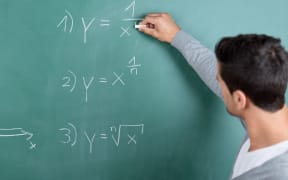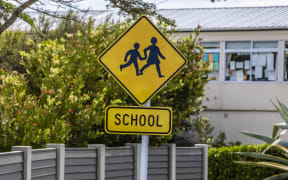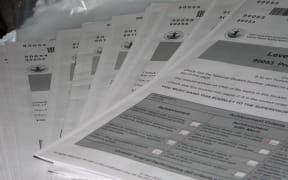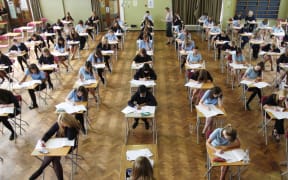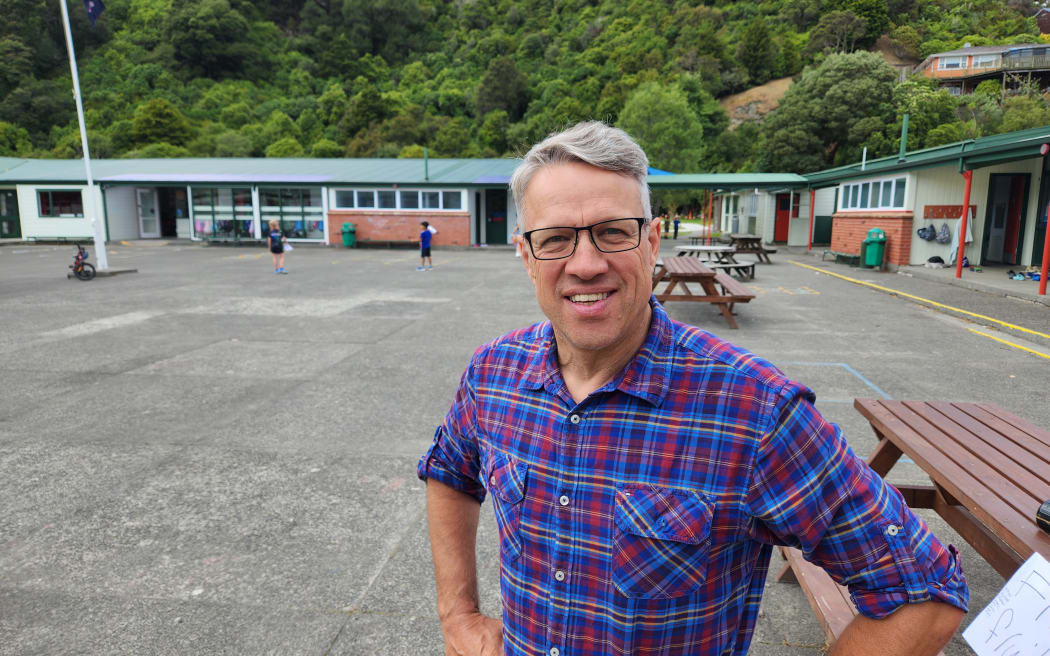
Getting in a hour of reading, writing and maths for each class every day is simply the 'bread and butter' of teaching, says Nigel Frater of the Wellington Regional Primary Principals' Association. Photo: RNZ/ John Gerritsen
Schools say they are having no trouble meeting the government's decree that they teach reading, writing and maths for an hour a day each on average.
Principals also say many schools have already adopted the government's favoured approach to reading - structured literacy which focuses on learning the sounds of letters.
But they warn that the government will need to pay for more training and resources if it is to achieve its goal of raising achievement.
Education Minister Erica Stanford has said she expected most schools were already teaching the basics for an hour a day and the requirement introduced at the start of this year was aimed at the few that might not be meeting the benchmark.
Principals' Federation president Leanne Otene said she was still gathering feedback from members, but schools were already focused on reading, writing and maths.
"We recognise that there is an imperative for improvement so we are looking at the one-hour of reading, writing and maths and saying 'okay, yes we fundamentally agree that this needs to happen'," she said.
"And if it isn't happening in the odd school here and there then this is instructing that, so consistency."
However Otene said the government would have to pay for training and support if it is to achieve its goals.
"Quite frankly, if we don't build up and maintain the capacity and capability of our workforce and have equitable implementation, her plan won't be achieved - the minister's plan," she said.
"We absolutely need adequate resourcing and we're talking about professional development, the resources our young people will need, the books for structured literacy etc.
"Even the most promising ideas can't be effectively realised if we don't have those resources."
Results from the OECD's most recent Pisa study showed 21 percent of New Zealand 15-year-olds were poor readers and 29 percent were poor at maths. Both figures were better than OECD averages but worse than New Zealand's previous performance.
The principal of Plateau School and president of the Wellington Regional Primary Principals' Association, Nigel Frater, said principals he had spoken with said they were already meeting the hour-a-day requirement.
"That's something that we do, it's our bread and butter. We all realise the importance of reading, writing and maths. It's just ensuring that the practice that does go on in our schools is bringing kids' achievement up," he said.
The government wants schools to teach children to read using structured literacy, which focuses on teaching children which sounds go with which letters, rather than prompting them to guess words based on their context and illustrations.
The previous government was also leaning in that direction, and Plateau School was one of many to adopt such an approach in the past year.
The school's new entrant teacher Louise Thomson said it was a big change but worth it.
"Because children, my children who are new entrant children, are learning how letters and sounds work right from the get go, they are walking around and able to read signs on the side of the road, able to unpack words in their environment that they might not have had access to before," she said.
Maths was the other area of focus for the new government.
Frater said it could be an area of relative weakness for some teachers.
"I think for teachers in general it's probably the one area that you find people saying 'oh I don't really like teaching that'.
"It's something they often don't gel with, possibly because of their experiences at school of maths maybe, that's often a significant factor," he said.
Frater said schools could buy off-the-shelf maths lessons for teachers to follow but he believed they should become better at understanding and teaching the subject in their own right, and for that they needed more help from the Ministry of Education.


